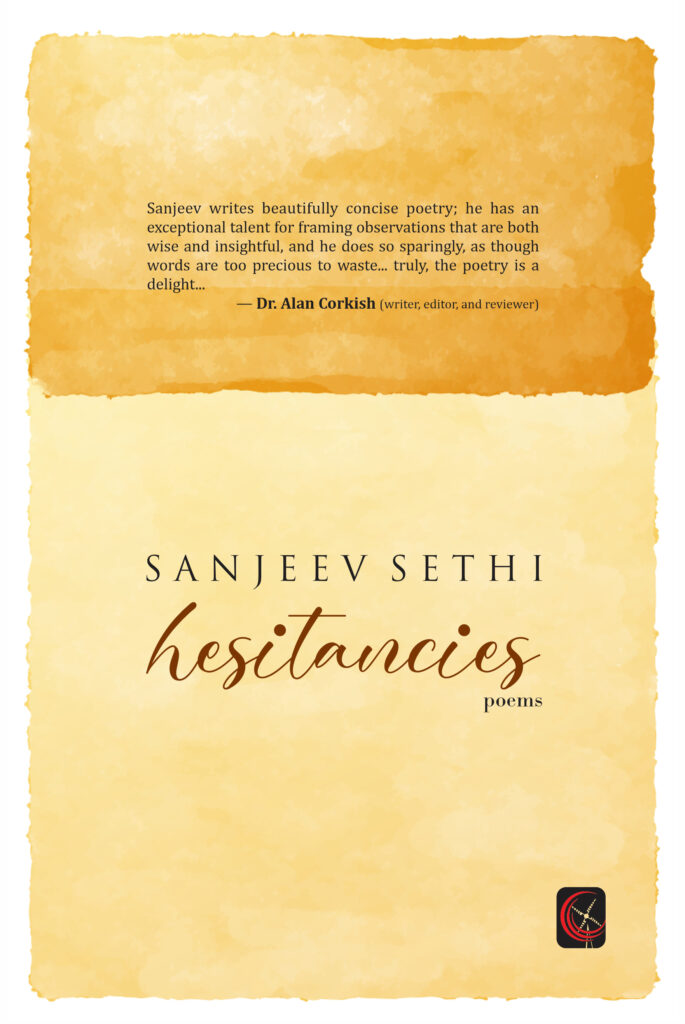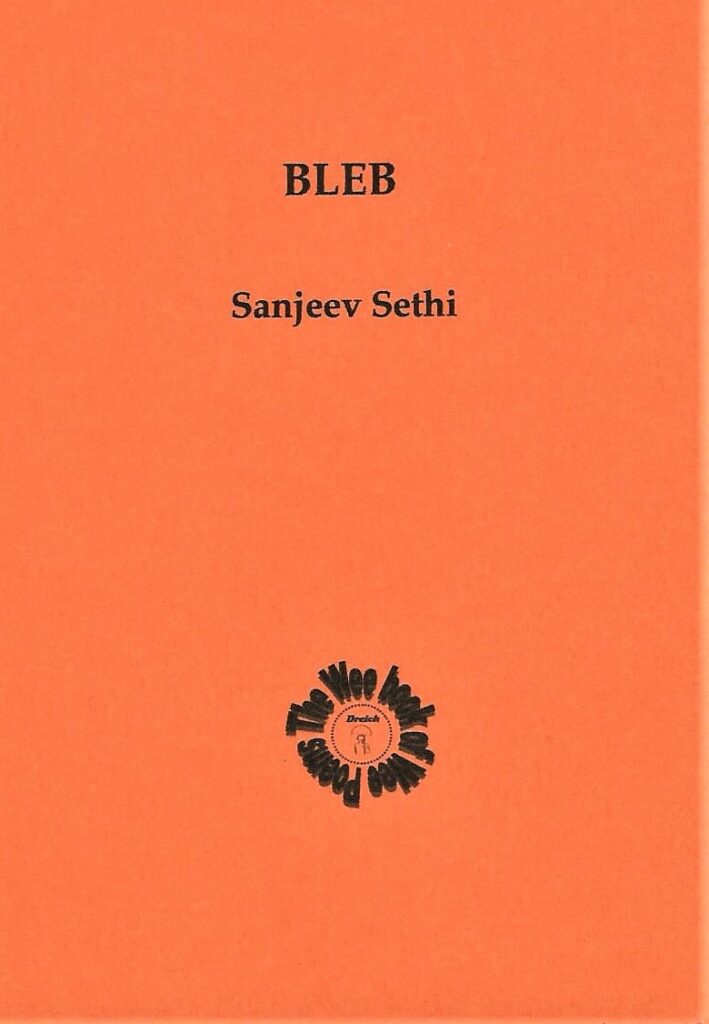
The elevated language in Sanjeev Sethi’s poetry collections Bleb and Hesitancies draws readers in, encouraging multiple readings of each short piece. Although the collections consist of small vignettes without a true narrative thread, some characters take shape: the speaker’s tiny grandchildren and aging parents.
Many pieces explore memory and internal thought processes: In “Palmer,” the speaker reflects on solitude: “The aftermath/is soaked in sapience./ Richness of receptacle/
endows the individuation/of insights.”
Others comment on the writing process and on words and imagination. In “Cry for Clemency” Sethi compares writing to raising children. “Poems are like progeny, after parturition they are nursed and nurtured until they fasten their futurity.”
While some would consider this metaphor unusual for a male writer, Sethi’s sensibility is delicate, full of grace for the human condition. He shows this sensitivity by including people of all ages and genders, including the elderly, as poetic subjects and describing them with dignity.

The slow pace of both collections encourages us to ‘hesitate,’ to step back and think, to develop and honor our interior lives. Sethi uses the word ‘hesitancies’ directly in a few pieces, many of which concern physical and emotional intimacy that deepens as people take the time to let relationships unfold.
Bleb and Hesitancies call to readers with a quiet insistence, pulling us in to matters of the heart and mind with the voice of a wise friend.
